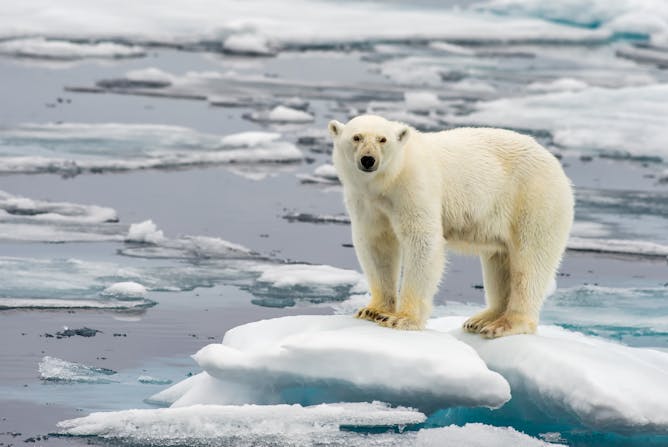|
Today’s the day Prime Minister Justin Trudeau makes the ceremonial visit to the Governor General and then – fasten your seatbelts – the election campaign is officially underway. The avalanche of campaign news and partisan messages will continue until Oct. 21. Social media plays an increasingly important role in the strategy of all parties, but will “bots” have an influence? Today in The Conversation Canada, Ahmed Al-Rawi of Simon Fraser University looks at the impact of bots – automated social media accounts programmed by humans to send hundreds and sometimes thousands of messages a day – in the pre-election period. His conclusion
after analyzing 1.7 million political tweets? Read on to find out.
Eric Oliver of Dalhousie University continues our series on ocean stories for Science Literacy Week by examining how warming seas are impacting the lives of people who make a living on the water.
Jody Mason of Carleton University tells us about Penguin Random House’s new “indie” imprint and what it will mean for Canadian literature and Sarah Kaplan of the Rotman School of Management at the University of Toronto looks at how many corporations are stepping in to fill the void left by lax government regulations on climate change and other issues.
Regards,
|

There’s little evidence that Twitter is being overrun with partisan bots in the leadup to the Canadian election.
Waldemar Brandt/Unsplash
Ahmed Al-Rawi, Simon Fraser University
Claims that tweets on the Canadian election are the work of bot accounts, without empirical evidence or verification, need to be taken with a grain of salt.
|

Sunset off the coast of Newfoundland.
Michel Rathwell/flickr
Eric Oliver, Dalhousie University
Coastal communities are part of the solution to understanding the impacts of marine heatwaves — and finding solutions.
|

Despite its rhetoric of innovation and experimentation, the indie-style imprint Strange Light is brought to us by a company that is already dominating the country’s literary space.
Amine Rock Hoovr /Unsplash
Jody Mason, Carleton University
Don't be fooled by the 'indie' rhetoric surrounding the new imprint of Penguin Random House Canada, a multinational corporation. Only time will tell if it will do much for the diversification of Can-Lit.
|

Corporations are stepping in to support and invest in social and environmental change when governments cannot or will not.
Shutterstock
Sarah Kaplan, University of Toronto
Corporations are often stepping in to fill the void when governments are failing to adequately address social, economic and environmental crises.
|

Un ours polaire sur une banquise. L'Arctique est particulièrement sensible aux changements climatiques, et la façon dont il réagit est complexe et a un impact important sur le reste du globe.
shutterstock
Marta Moreno Ibáñez, Université du Québec à Montréal (UQAM); Rene Laprise, Université du Québec à Montréal (UQAM)
L'Arctique est particulièrement sensible aux changements climatiques, et la façon dont il réagit est complexe et a un impact important sur le reste du globe.
|
Politics
|
-
Matthew Flinders, University of Sheffield
A strong speaker is never going to win friends. Bercow had a different goal.
|
|
Arts
|
-
Kevin Sandler, Arizona State University
Demands for regulation of media violence reached a fever pitch after RFK's assassination, and networks scrambled to insert more kid-friendly fare into their lineups. Enter: the Mystery Machine.
|
|
Health + Medicine
|
-
Lindsay Bottoms, University of Hertfordshire; Daniel Muniz, University of Hertfordshire
What the science says about working out in extreme temperatures.
|
|